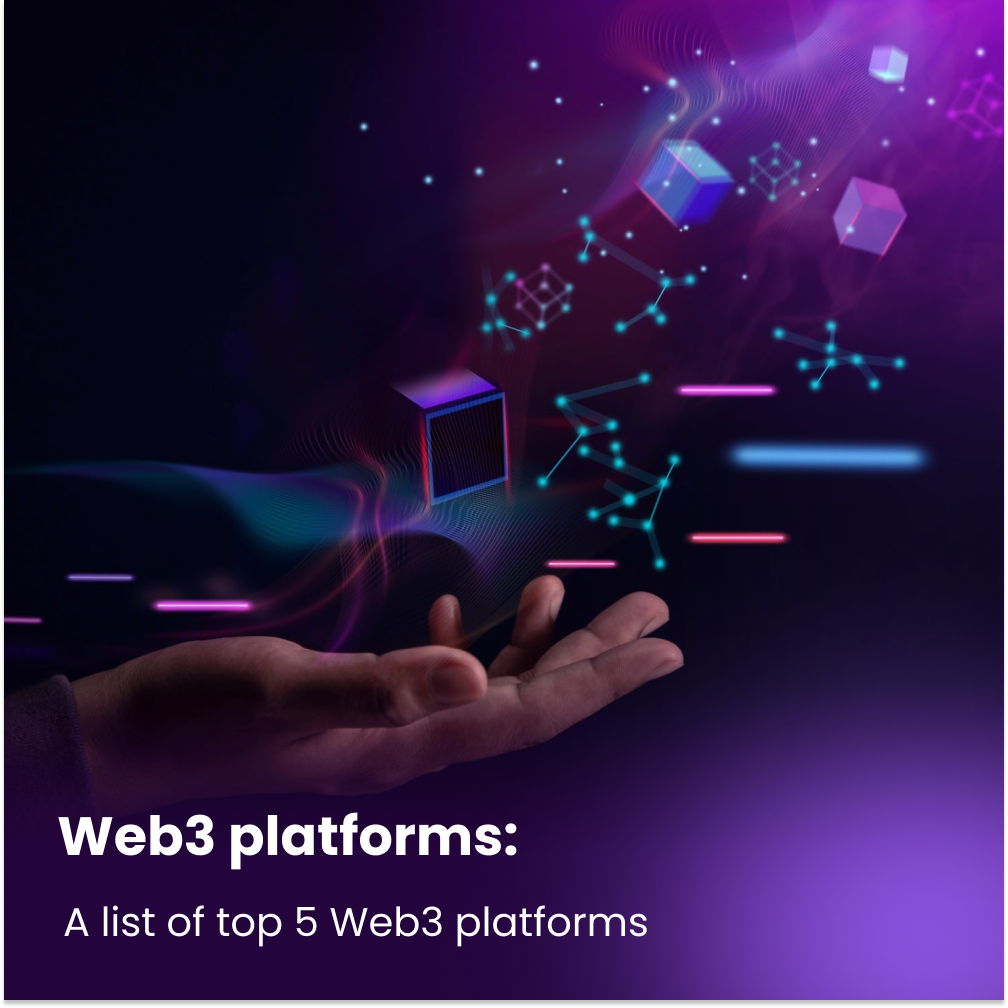
Estimated reading time: 8 minutes
In recent years, blockchain technology and decentralized applications (dApps) have revolutionized the way we interact with the internet. Web3 platforms have emerged as a new generation of internet infrastructure that aims to create a more decentralized, secure, and democratic internet.
Web3 software and platforms refer to a collection of tools and platforms developed specifically for Web3. Decentralized applications, also known as Web3 apps, aim to eliminate any centralized point of failure. These platforms can be utilized in various scenarios, including spatial computing use cases, cryptocurrency, and blockchain technology.
These platforms enable developers to build and deploy decentralized applications that are resistant to censorship, fraud, and third-party interference. In this article, we will explore some of the top web3 platforms that are leading the charge in decentralization and shaping the future of the internet.
What is Web3?
Before we go on to introduce Web3 platforms, let’s first discuss Web3 meaning.
Web3 refers to the next evolutionary stage of the internet, which is decentralized and built on blockchain networks using blockchain technology.
In contrast to the current web infrastructure (Web2), where central authorities control data and information flow, Web3 offers a more democratic and transparent environment.
It allows users to access decentralized applications, communicate with each other, and transact without the need for intermediaries. Web3 represents a paradigm shift in how the internet operates, creating a trustless ecosystem that enables new use cases such as NFTs, DAOs, and spatial computing experiences.
With its unique architecture and decentralized approach, Web3 has the potential to revolutionize the way we interact with technology and each other online.
What are Web3 Platforms?

When discussing web3 platforms, the first question that arises is about their definition. A Web3 platform can be defined as software that assists developers in creating and interacting with decentralized applications in the web3 landscape. These platforms act as repositories for necessary tools and infrastructure elements required for developing decentralized applications.
The relevance of web3 platforms in the present era is highlighted by the increasing demand for dApps, which has brought attention to smart contracts. Smart contracts can automate specific aspects of decentralized applications and can also provide additional functionalities such as data storage and asset tracking.
However, it is important to note the challenges associated with testing and deploying smart contracts within local developer environments. In such cases, web3 blockchain platforms can be promising solutions, offering the necessary infrastructure and testing frameworks for web3 development.
Advantages of Web3 Platforms
Blockchain applications have started a revolution in web3 and opened up new chances for digital transformation. Developers can integrate many valuable benefits into their applications using the most popular web3 platforms.
Decentralized applications are created on the web3 network, which ensures immutability and security. These platforms provide the necessary tools for faster and easier development of decentralized applications. They include tools for easier querying of blockchain data and a testing framework to ensure the proper functioning of the apps.
A web3 development platform offers numerous advantages, including the ability to create decentralized applications (dApps) that are not under the control of any single entity. These platforms also allow you to connect to multiple blockchain networks and provide various tools and resources to aid in the development process and asset management. Additionally, they enable you to access blockchain data and interact with blockchain technologies.
Moreover, Web3 platforms also emphasize plugins for integrating different applications with web3 applications. Another promising benefit of these platforms is the ability to transform traditional applications through web3 development.
Popular Web3 Platforms in 2023
Finding the best web3 platforms is crucial in determining the ideal choices for developing your web3 applications. The following is an overview of the top web3 platforms that have gained prominence in 2023.
1-Alchemy
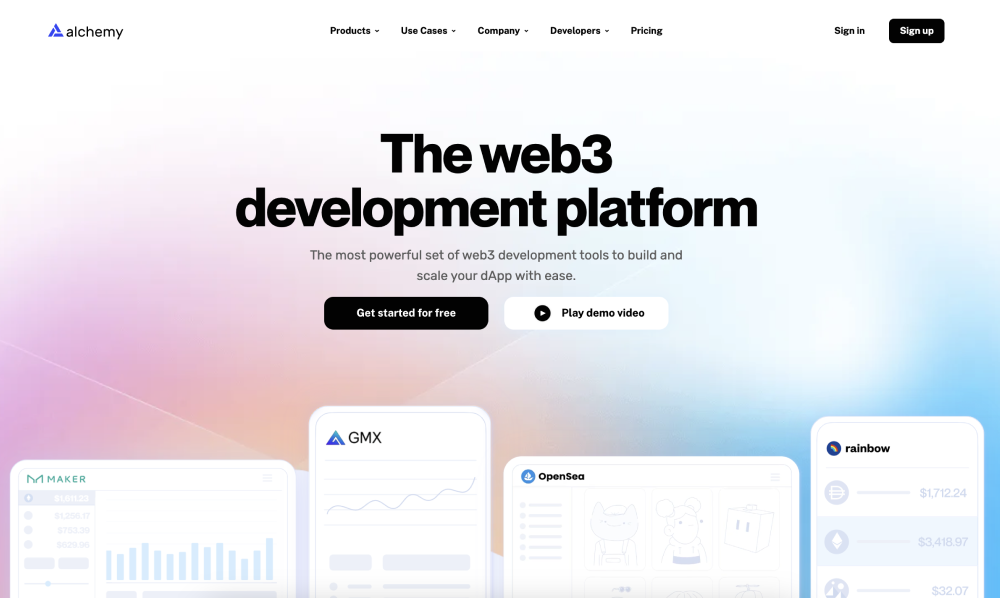
Alchemy is a leading Web3 development platform that has been focusing on blockchain technologies since August 2017.
Over the past few years, Alchemy has already accomplished a transaction volume of over 100+ Billion on-chain and has over 10 million end-users. The Alchemy Platform offers an all-in-one solution for your Web3 development needs, providing access to everything required to build top-notch dApps.
Alchemy enables you to quickly and effortlessly deploy your smart contracts on Ethereum or any other major blockchain. They also provide extensive documentation that covers everything from setting up your development environment to deploying your smart contract on the Ethereum mainnet.
2-Buildspace

Buildspace is an excellent web3 platform that provides all the necessary resources for coding your project. What sets Buildspace apart is its user-friendly interface, making it easy to use, especially for beginners. The platform is compatible with all popular coding languages. They offer two-week programs where you can quickly build your first smart contract and begin developing the dApp or web3 project of your dreams.
In addition, Buildspace is also a community that provides access to exclusive work opportunities not found elsewhere. They are software developers who possess exceptional skills and are dedicated to sharing their knowledge with others.
3-Thirdweb
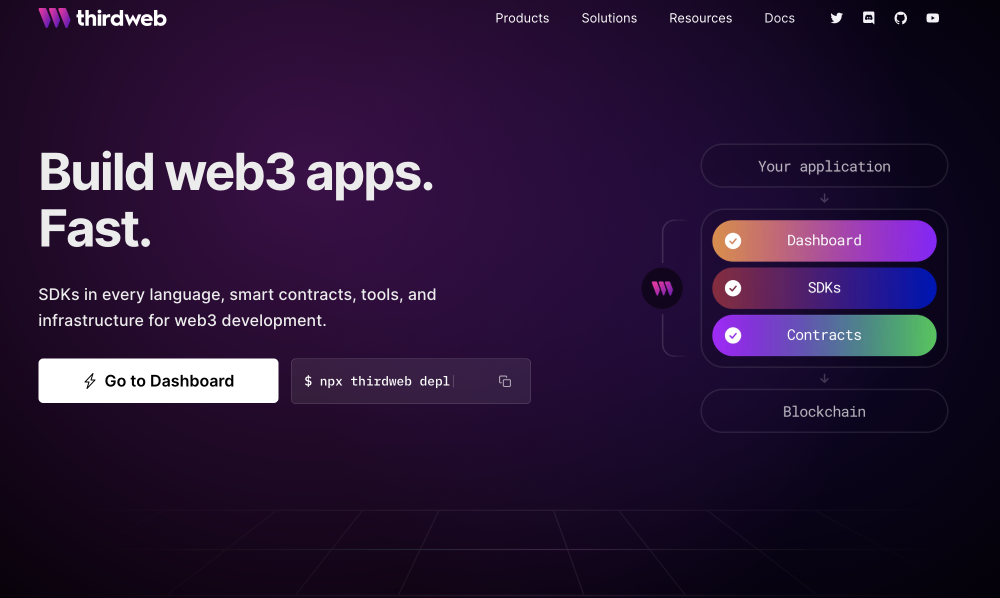
Thirdweb is a well-known choice for web3 development platforms due to its various functions. Its user-friendly interface makes it easier to create smart contracts, and developers can use smart controls to manage app tasks and deployment.
Another highlight of Thirdweb is its security features for digital assets, including personal or multi-sig wallets. This eliminates the need for users to manually manage private keys and back them up, reducing the risk of security breaches.
With Thirdweb developers can power up extensions to create various solutions, such as crypto wallets or decentralized exchanges. Thirdweb offers pre-built contracts for developing web3 applications, and its dashboard enables control over all aspects of contract interactions and user permissions.
Additionally, Thirdweb has open APIs for easier integration with web or mobile apps. Overall, Thirdweb is a great choice among Web3 platforms.
4-Moralis
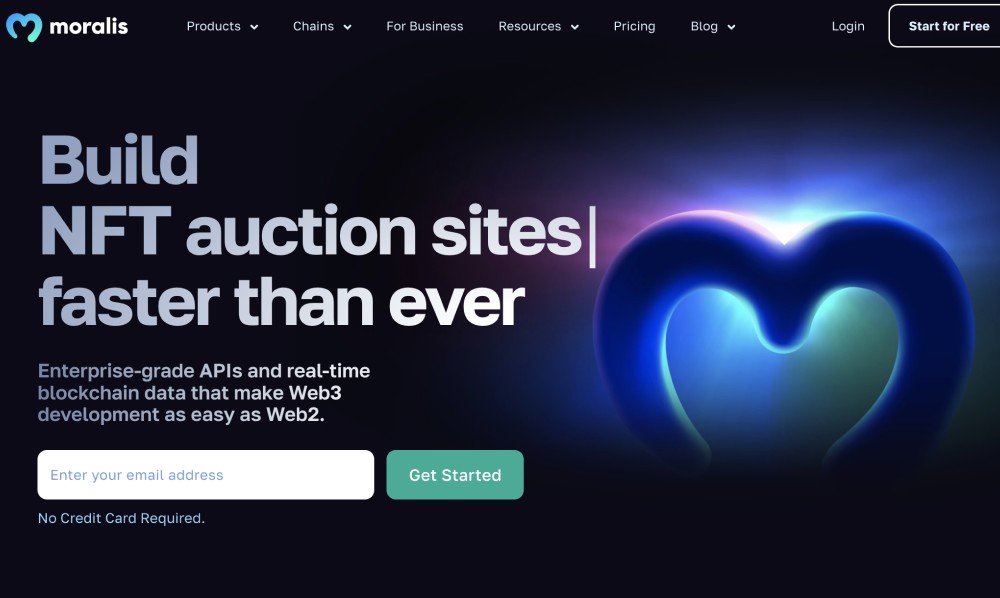
Moralis is a platform for web3 development that provides APIs, SDKs, and data for building high-performance dApps. It serves as a web3 infrastructure provider, making it easy for developers to interact with a range of Web3 services like authentication, NFTs, on-chain data, and smart contracts, through its Cross-chain Web3 API.
One of the best things about Moralis is that it can scale projects easily if they gain hype and become popular, by minimizing the effort needed to add functionality to the app.
This platform offers comprehensive documentation that covers everything from configuring the development environment to deploying smart contracts on the Ethereum mainnet.
In addition, Moralis provides a variety of resources such as blog posts, tutorials, documentation, and lessons on blockchain development, as well as linking web development with blockchain.
5-Infura
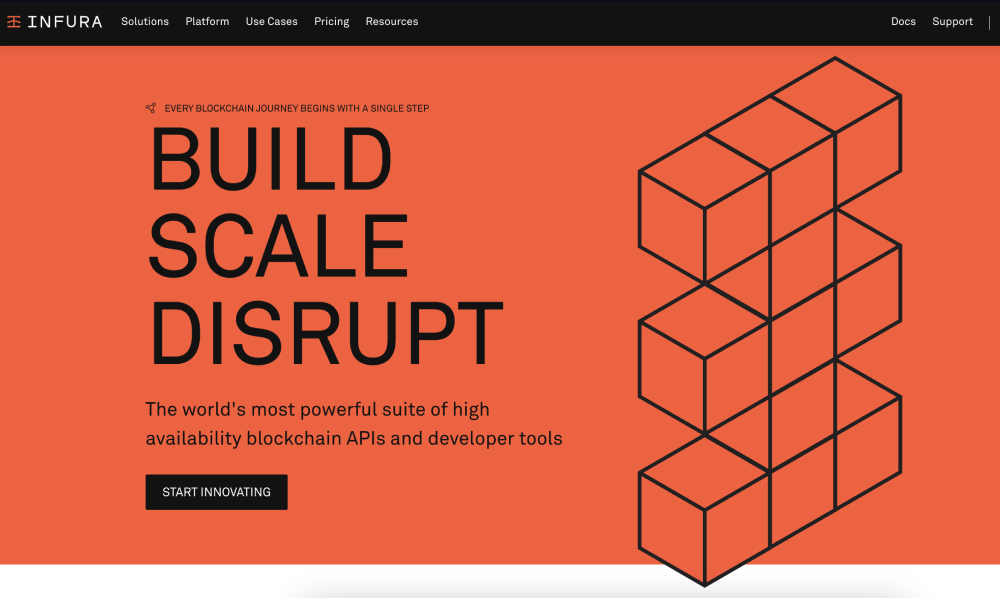
Since 2015, Infura has been one of the widely-used Web3 platforms that provide developers with access to major blockchains, including Ethereum, Bitcoin, and IPFS, among others.
Infura enables you to deploy your smart contracts on Ethereum or other major blockchains with ease. Their extensive documentation is an excellent resource for blockchain developers who encounter obstacles during the development process and need assistance.
As a result, Infura is still widely used by many blockchain developers today.
A Web3 Platform for Spatial Computing

Teleport Plaque Address (TPA) is an addressing system and a bleeding-edge technology introduced by Stage Meta that uses the blockchain and functions on spatial computing.
A TPA works as a unique identifier that locates and grants access to virtual worlds within decentralized networks called spatial computing. Unlike a web address or URL that directs users to a webpage, TPA assigns a unique code to a particular location within a virtual world. Users can discover, purchase, and use TPA by accessing the Stage Meta website.
As a Web3 routing protocol, Teleport Plaque Addresses consist of a six-character code comprising three letters and three numbers and function as Smart Contracts on the Ethereum blockchain. Businesses can make use of TPA to start their business in spatial computing.
Unoccupied land in any world can be designated as a virgin plaque, and owners can trade their plaques on any Ethereum-based marketplace.
Prominent worlds that employ TPA include Times Square, Dundas Square, and 50 additional worlds that offer distinctive experiences and communities for users to explore and engage with. These virtual worlds enable users to connect, create and share content, and even trade virtual assets utilizing blockchain technology.

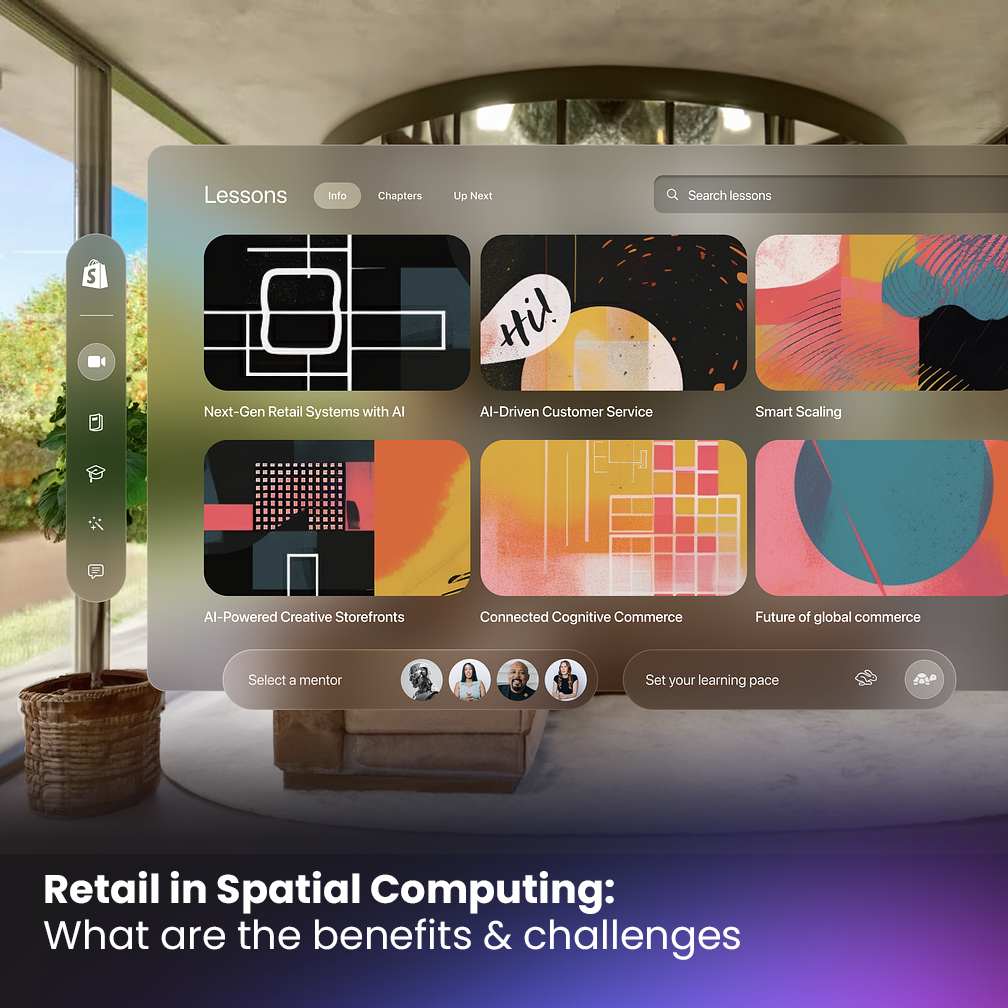

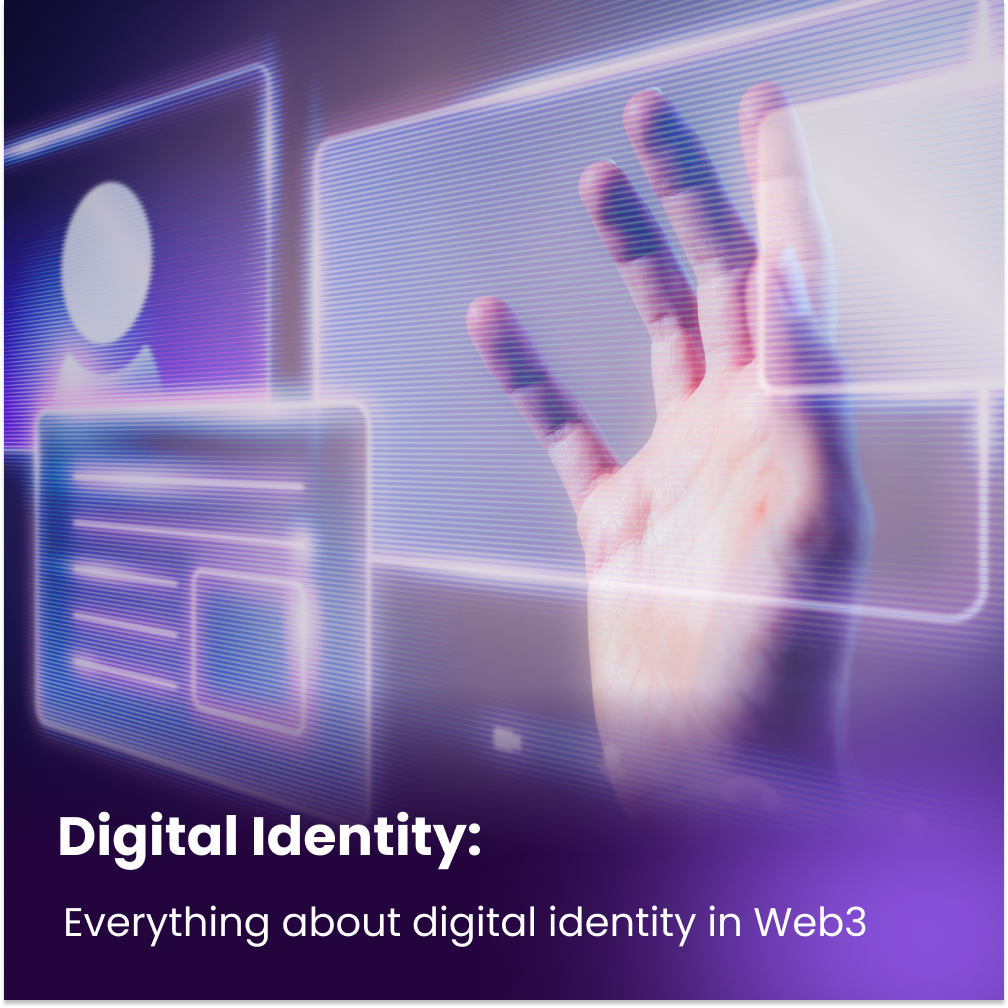





1 Comment
[…] Top 5 Web3 platforms you need to know about […]